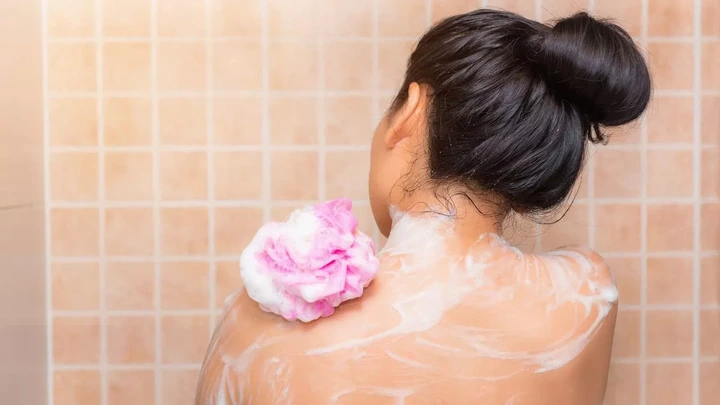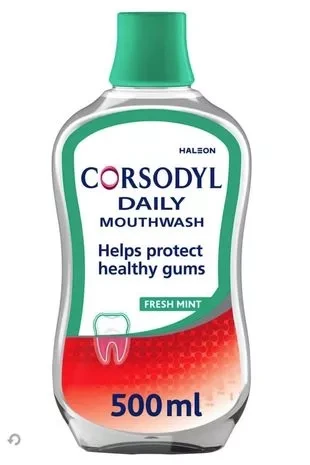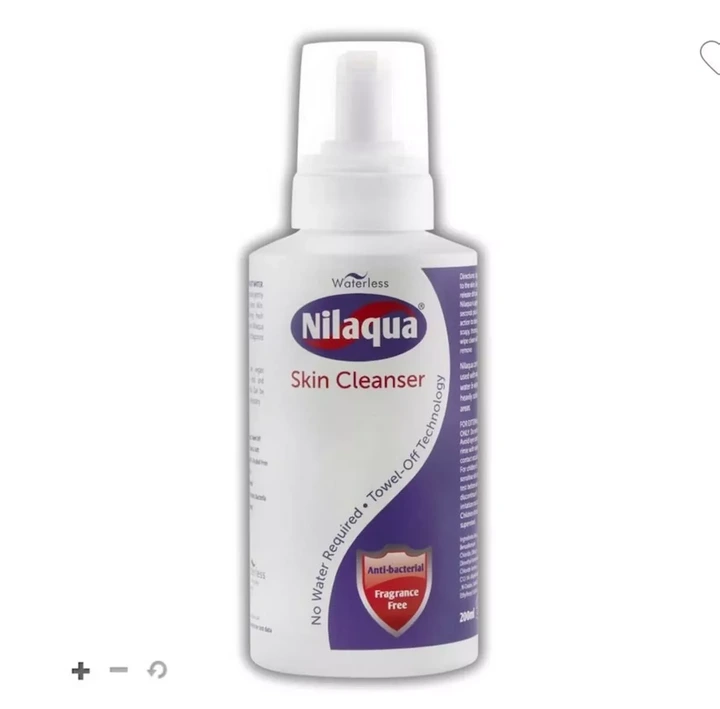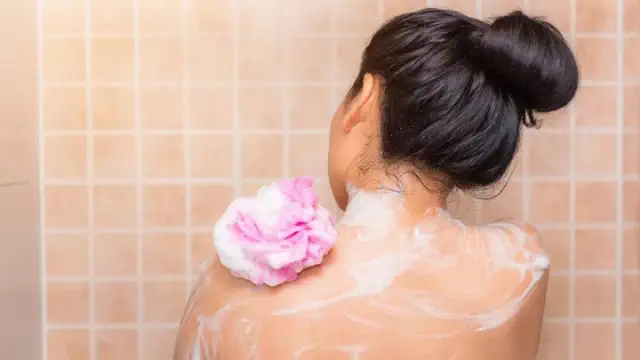The House of Lords is set to discuss a proposed amendment to legislation, prompted by the discovery that certain products, such as mouthwashes and hand sanitisers, contain 'biocides' that may eliminate beneficial bacteria in our bodies.

View pictures in App save up to 80% data.
Popular soaps, shampoos and dental products contain chemicals which could be harming our immune systems, scientists warn.
A bill being debated in Parliament on Friday describes how so-called ‘biocides’ found in toothpastes and body washes wipe out good bacteria in our microbiome and can cause disease. The Mirror can reveal a host of popular products such as mouthwashes and hand sanitisers include 'antibacterial' ingredients that kill our healthy microbes.
Today we outline a list of significant biocides to look out for in the ingredients of your bathroom products. Research shows mouthwashes containing a common biocide called chlorhexidine can wipe out 90% of protective bacteria in the oral microbiome and increase high blood pressure.
Peer Natalie Bennett, the former Green Party leader, is tabling the bill, and states in its foreword: “What was your morning like? Maybe, singing cheerfully, you jumped into the shower, reaching for the antibacterial body wash, on special this week, with its loud label claiming “kills 99% of bacteria”. Afterwards you brushed your teeth with the heavily advertised new antibacterial toothpaste and used chlorhexidine-containing mouthwash.

View pictures in App save up to 80% data.
“On your face, moisturiser. You’ve had that tube for several months, but it contains preservatives, so it is still fresh. You pulled on some new socks you got for Christmas, promising ‘extra antibacterial freshness’ from silver-infused material. You reached for a menstrual product promising to prevent odour and 'guarantee freshness', which also contains silver.
"Prior to enjoying your breakfast, you've already exposed your microbiome – the multitude of microbial species that together form your holobiont – to a series of biocides, essentially toxins. The importance of the microbiome to our existence is well established; particularly, our gut microbiome, which is the most studied (though still not fully understood), plays a crucial role in both mental and physical health. We currently lack detailed information on how this exposure affects it, but it’s safe to assume the consequences are not positive."
She remarked, “The products mentioned in the hypothetical scenario I presented earlier are not essential. They offer no advantages compared to non-biocidal alternatives, and yet they pose a threat to our health—human, animal, and environmental.”
While the spotlight has primarily been on pharmaceuticals, cleansing products containing biocides are now widely available for purchase without a prescription. The ability to claim 'antibacterial' properties or to effectively eliminate bacteria has emerged as a significant marketing advantage.

View pictures in App save up to 80% data.
The human body is home to trillions of microorganisms, such as bacteria, viruses, and fungi, which greatly exceed the number of human cells. This vast community of microbes is known as the microbiome and can be found throughout various parts of our body, including the mouth, gut, lungs, and skin. Maintaining a proper balance of these microorganisms is crucial for the functioning of our bodies and the effectiveness of our immune system.
The depletion of beneficial bacteria and other microorganisms allows harmful microbes to flourish in their absence. The use of biocides eliminates both good and bad bacteria or fungal microbes, potentially causing imbalances that may result in infections and diseases.

View pictures in App save up to 80% data.
Chlorhexidine is commonly found in cosmetics and personal hygiene items, as well as in many over-the-counter mouthwashes. A study released in 2020 revealed that mouthwash with chlorhexidine significantly alters the oral microbiome.
The biocide is present in the well-known Corsodyl Daily Mouthwash and Boots Expert Chlorhexidine Dental Tape floss. Research indicated that using Corsodyl Mint, which has a concentration of 0.2% chlorhexidine, for a mere seven days resulted in notable changes in oral bacteria. Earlier studies have demonstrated that disturbances in the oral microbiome can elevate blood pressure, particularly among individuals who already suffer from hypertension.
Shower gels also contain biocides and one called Benzalkonium Chloride is an ingredient present in Nilaqua No-Rinse Antimicrobial Body Wash Skin Cleansing Foam.. The body wash is promoted by saying it “kills 99.9999% of germs”. Some hand sanitisers include biocides and Benzalkonium Chloride is found in Wet Ones Be Fresh Biodegradable Antibacterial Hand Wipes.
The Consumer Products (Control of Biocides) Bill, which is set to be discussed in the House of Lords at 11am on Friday, aims to prohibit the inclusion of biocides in non-medical over-the-counter items unless there is compelling evidence to support their use.
Biocides frequently present in various consumer products designed for human use include:
- Benzalkonium chloride (soaps, hand sanitisers)
- Chlorhexidine (mouthwashes, body washes)
- Triclosan (soaps, hand sanitisers)
- DDAB
- DDAC
- Octenidine (body washes)
Dr. Paul-Enguerrand Fady, a specialist at the Centre for Long Term Resilience and a contributor to the bill's drafting, shared with the Mirror: “The current landscape for these products resembles the Wild West. Instead of assuming all is well, this legislation would require manufacturers to demonstrate safety. Our goal is to transition these items from being readily available on store shelves, akin to candy, to requiring at least minimal interaction with a qualified professional for purchase. We aim to stop individuals from inadvertently acquiring these biocides."
Experts argue that implementing a ban is crucial to prevent a "whack-a-mole" scenario, in which regulators identify and eliminate one dangerous biocide from products, only for it to be substituted with another chemical that may ultimately prove to be just as harmful, if not more so.
Professor Andrew Seaton, President of the British Society for Antimicrobial Chemotherapy, and Consultant in Infectious Diseases at NHS Greater Glasgow and Clyde, said: “Outside of healthcare, the benefits of biocides are at best speculative, but harms are potentially significant and irreversible. The indiscriminate use of biocides has the potential to drive antimicrobial resistance (AMR) by directly disrupting both the human microbiome as well as our fragile environmental ecosystem."
Biocides can wash into our sewage systems and, even if treated, add to the build-up of AMR in our waterways. England’s previous chief medical officer Sally Davies has warned of an “antibiotic apocalypse” if AMR build-up continues, leading to a world where common infections and routine operations could become fatal.
Dr. Emma Meredith, the director general of the Cosmetic Toiletry and Perfumery Association, stated: “The suggestion to limit the use of biocides in cosmetic items is unwarranted, as the stringent UK regulations governing the production and distribution of cosmetics, established more than four decades ago, already tackle the concerns highlighted by the proposed legislation.”
"Neglecting to consider the current strong legislation, one unintended effect of the bill could be the unwarranted prohibition of safe cosmetic preservatives that are already well-regulated. These preservatives play a crucial role in safeguarding our cosmetics and personal care items from contamination by harmful microbes."
Victor Efford, the operations director at Waterless, the company behind Nilaqua Skin Cleansing Foam, stated: “At present, there are robust measures implemented to limit and manage the presence of biocidal substances in cosmetic products. The UK's cosmetics regulation 2009/1223, the oversight of medicinal products by the MHRA, and the biocidal regulation GB BPR all play a crucial role in monitoring these components, utilizing the most recent scientific evidence.”
"Introducing prescription requirements for existing medical devices would place an immense burden on an already strained NHS, which lacks the budget and time for additional GP appointments and prescriptions for products that were once readily accessible. Instead of imposing bans and penalties, we should encourage the use of more natural alternatives, allowing consumers the freedom to choose these options for themselves. Ultimately, this approach needs to be implemented with caution, concentrating solely on non-essential cosmetic items."
Boots and Haleon, the producer of Corsodyl mouthwash, chose not to provide any comments. Meanwhile, Edgewell Personal Care, known for Wet Ones, had not replied to the Mirror by the time the article was published.










